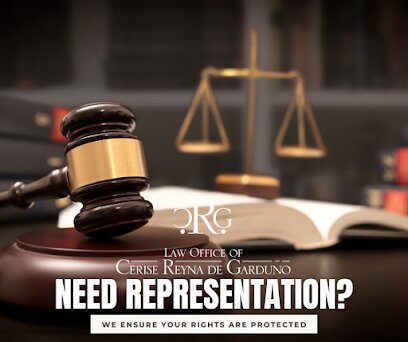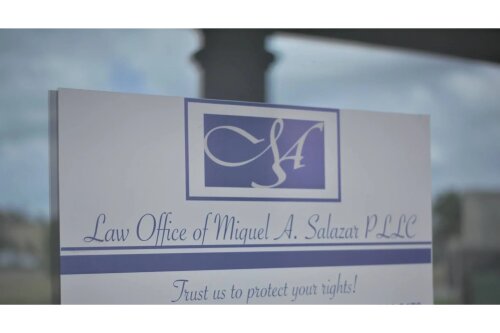Best Defamation Lawyers in Brownsville
Share your needs with us, get contacted by law firms.
Free. Takes 2 min.
List of the best lawyers in Brownsville, United States
About Defamation Law in Brownsville, United States
Defamation is a legal term for a false statement presented as fact that harms a person or business reputation. In Brownsville, United States, defamation cases are governed primarily by state law and shaped by the First Amendment to the U.S. Constitution. The two common categories are libel - false statements in a fixed medium such as writing, email, or social media posts - and slander - false oral statements. Most defamation claims in Brownsville are civil lawsuits brought in county or district court seeking money damages or retractions, although the constitutional protections for speech play a major role in some claims, especially those involving news media or public-figure defendants.
Why You May Need a Lawyer
Defamation disputes can be legally complex and fact-sensitive. You may need a lawyer in Brownsville, United States if any of the following apply:
- Someone published false statements that have caused you measurable harm, such as lost clients, lost employment opportunities, damage to your professional license, or emotional distress.
- The statements were shared widely online or by local media outlets, amplifying the harm.
- The defendant is a media organization, public official, or other powerful entity - these cases often raise First Amendment issues and higher proof standards.
- You are considering sending a demand letter, seeking a retraction, or filing suit and want to understand risks such as anti-SLAPP motions.
- You need to preserve evidence, obtain subpoenas for platforms, or identify anonymous posters.
- You are facing a defamation counterclaim, or the defendant has responded with a threat to sue.
Local Laws Overview
When dealing with defamation in Brownsville, United States, several local and state-law features are particularly important:
- Governing law: Defamation in Brownsville is handled under Texas defamation law because Brownsville is in Texas. Texas courts apply both state common law and federal constitutional law principles when evaluating defamation claims.
- Statute of limitations: In Texas, defamation claims typically must be filed promptly. The statute of limitations for libel and slander is short - generally a 1-year deadline from the date the defamatory statement was published. Missing this deadline usually bars the claim, so prompt action is crucial.
- Burden of proof and standards: The standard a plaintiff must meet depends on public versus private status. Public officials and public figures must prove actual malice - knowledge of falsity or reckless disregard for the truth. Private individuals generally must show fault - often negligence - and prove falsity when the statement concerns a matter of public concern.
- Types of defamation: Defamation per se involves statements so damaging on their face that damages are presumed - for example, false accusations of committing a serious crime or false statements that damage professional reputation. Other statements require proof of actual damages.
- Defenses: Common defenses include truth, opinion (statements that are subjective or rhetorical hyperbole), absolute privilege (statements made in judicial or legislative proceedings), qualified privilege (fair and accurate reports of public proceedings), and consent. Online platforms often have some protections under federal law for third-party content, but the original speaker can still be sued.
- Anti-SLAPP and expedited procedures: Texas has a statute to discourage strategic lawsuits against public participation - commonly called the Texas Citizens Participation Act - which allows defendants to seek early dismissal and, if successful, fee recovery. Plaintiffs should expect defendants to raise anti-SLAPP defenses in public-issue cases.
- Remedies and damages: Plaintiffs may seek actual damages for economic and reputational harm, presumed damages in certain per se cases, and punitive damages if malice or egregious conduct is proven. Courts can also award injunctive relief or require retractions in limited circumstances, but injunctive relief raises free-speech concerns and is scrutinized.
- Online and anonymous speech: Internet posts are usually treated as libel if they are published in a permanent form. Identifying anonymous posters often requires subpoenas to internet service providers or social platforms, and requests must comply with procedural rules and constitutional protections.
Frequently Asked Questions
What exactly counts as defamation in Brownsville, United States?
Defamation is a false statement of fact, communicated to a third party, that harms your reputation. If the statement is written or in a permanent form it is typically called libel; if spoken it is slander. Whether a statement is actionable depends on falsity, harm, and applicable legal standards such as public-figure rules.
How long do I have to file a defamation suit?
In Texas, you generally have 1-year from the date of publication to file a defamation lawsuit. Because this deadline is short, preserve evidence and consult an attorney as soon as possible if you believe you have a claim.
Can I sue someone for a false social media post?
Yes, a false and harmful social media post can be the basis for a libel suit if it meets the elements of defamation. However, you must prove the post was false, caused harm, and that the defendant is not protected by a defense like truth or opinion. Identifying anonymous posters may require legal steps to compel platform disclosure.
What defenses will the defendant likely raise?
Common defenses are truth, opinion, privilege (absolute or qualified), and lack of publication or actual harm. If the defendant is a media outlet or the issue is of public concern, First Amendment protections and anti-SLAPP laws may also be used to seek dismissal.
Do I have to be a public figure to sue for defamation?
No. Private individuals can sue for defamation. However, public figures and public officials face a higher proof standard - they must show actual malice. Private plaintiffs usually need to show the defendant acted with at least negligence regarding the truth.
What kinds of damages can I recover?
You can seek actual damages for provable economic loss and reputational harm, and in limited cases presumed damages for defamation per se. Punitive damages may be available when the defendant acted with malice or egregious misconduct. Courts will evaluate evidence of harm, such as lost business, job offers, or expert testimony.
Should I send a cease-and-desist letter or a retraction demand?
Often a carefully drafted demand letter or retraction request from an attorney is a prudent first step. It can lead to a correction or apology without litigation. However, improper or aggressive letters can escalate the situation or trigger anti-SLAPP claims, so consult a lawyer before sending formal demands.
Can a platform like a social network or review site be sued?
Under federal law, many online platforms have limited liability for third-party content. That typically shields platforms from suit for user posts, although the original poster can still be held responsible. In some situations, platforms will remove content when presented with clear proof of falsity or a court order.
What should I do to preserve evidence?
Save screenshots, emails, messages, web pages, and any witness information immediately. Note dates, times, and how the statement spread. Preserve metadata if possible and avoid altering the content. An attorney can advise on preservation letters and subpoenas if needed.
How much does a defamation lawsuit cost and how long does it take?
Costs vary widely based on complexity, damages sought, and whether cases settle. Some attorneys handle defamation cases on hourly rates, retainer, or contingency-fee arrangements in cases with strong economic damages. Cases can resolve quickly with settlement or demand letters, but contested litigation may take many months to years. Discuss fees and strategy with a lawyer early to set expectations.
Additional Resources
Below are local and state resources that can help you learn more or find legal assistance in Brownsville, United States:
- Texas State Bar - Lawyer Referral and public information services for finding qualified attorneys and for general legal information.
- Texas RioGrande Legal Aid - A legal aid organization that may assist qualifying low-income residents with civil legal issues.
- Cameron County District Clerk or County Courthouse - For filing information, court procedures, and records related to civil suits in Brownsville.
- Texas State Law Library - For research on state statutes, case law, and legal guides about defamation and civil procedure.
- Local law firms and the Brownsville-area bar associations - Many local attorneys handle defamation, media law, and civil litigation; a referral service can help you find a lawyer with the right experience.
- Online legal self-help resources and court forms - Useful for understanding basic procedures, but complex claims usually require attorney guidance.
Next Steps
If you believe you have been defamed in Brownsville, United States, take these practical steps:
- Preserve evidence immediately - save screenshots, messages, recordings, and eyewitness information. Do not delete relevant material.
- Document harm - keep records of lost business, canceled contracts, disciplinary inquiries, or other quantifiable losses tied to the statement.
- Avoid impulsive public responses - responding on social media can complicate legal strategy and inflame the situation. Speak with counsel before posting.
- Consider a demand letter or retraction request - consult a lawyer to draft a professional demand that may resolve the matter without litigation.
- Contact a qualified attorney - look for a lawyer experienced in defamation, media law, and local Texas practice. Ask about initial consultations, fee structures, and potential strategies including settlement, retraction, or litigation.
- Act quickly - statutes of limitations and procedural timelines are short in defamation cases. Prompt consultation protects your rights and preserves options for relief.
If you need help finding counsel or understanding your options, reach out to the Texas State Bar referral service or a local legal aid organization to get a reliable referral and next-step guidance tailored to your situation.
Lawzana helps you find the best lawyers and law firms in Brownsville through a curated and pre-screened list of qualified legal professionals. Our platform offers rankings and detailed profiles of attorneys and law firms, allowing you to compare based on practice areas, including Defamation, experience, and client feedback.
Each profile includes a description of the firm's areas of practice, client reviews, team members and partners, year of establishment, spoken languages, office locations, contact information, social media presence, and any published articles or resources. Most firms on our platform speak English and are experienced in both local and international legal matters.
Get a quote from top-rated law firms in Brownsville, United States — quickly, securely, and without unnecessary hassle.
Disclaimer:
The information provided on this page is for general informational purposes only and does not constitute legal advice. While we strive to ensure the accuracy and relevance of the content, legal information may change over time, and interpretations of the law can vary. You should always consult with a qualified legal professional for advice specific to your situation.
We disclaim all liability for actions taken or not taken based on the content of this page. If you believe any information is incorrect or outdated, please contact us, and we will review and update it where appropriate.











